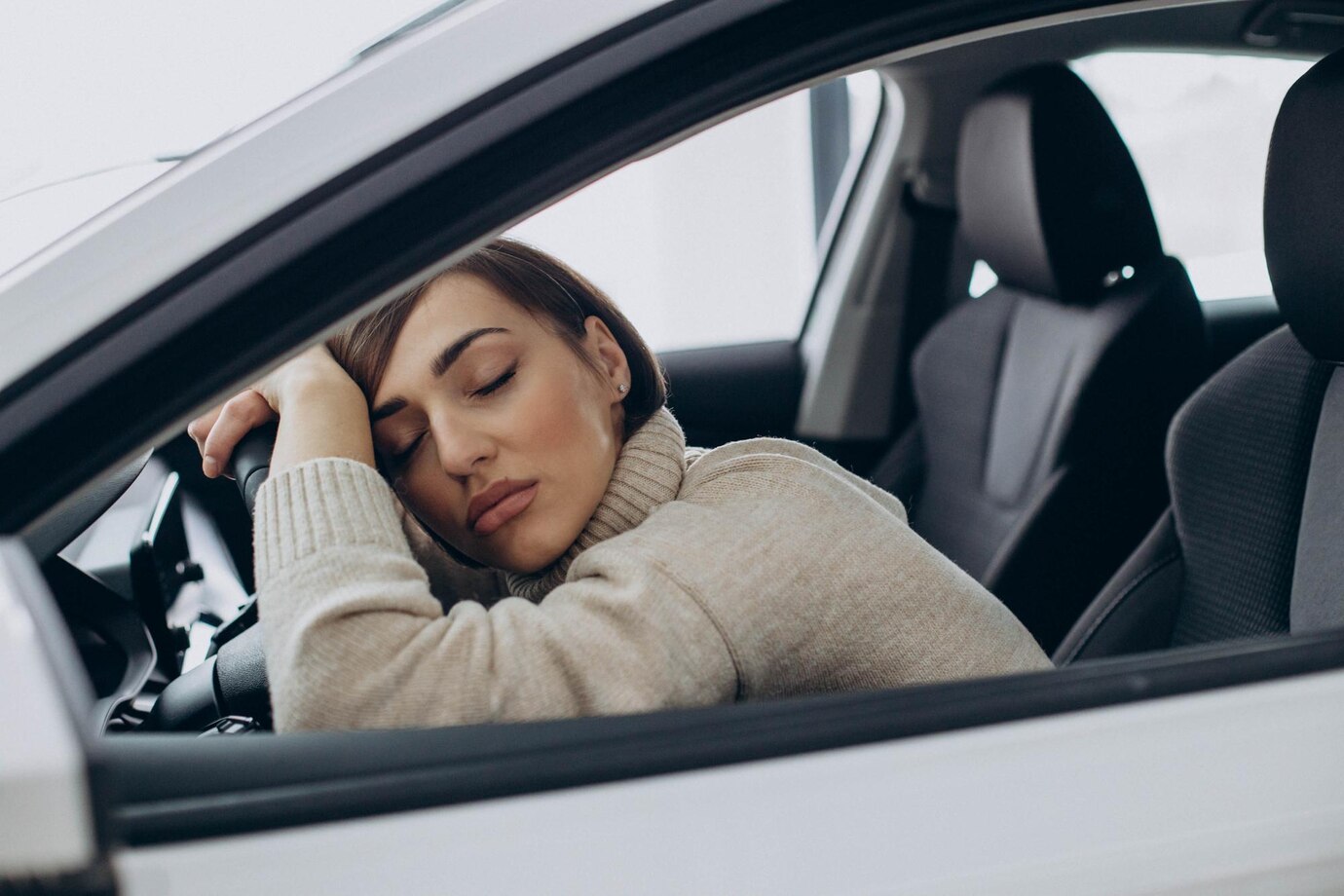OSA and Motor Vehicle Accidents
Fatigue, Sleep Apnea and Motor Vehicle Crash Risk
What is the link between OSA and car accidents?
OSA is one of a group of conditions known as sleep disordered breathing. In people with OSA, the upper airway partially or completely closes during sleep, causing them to wake up momentarily to re-open the airway. This leads to disturbed sleep and the release of stress hormones.
Untreated OSA often causes daytime sleepiness, fatigue and difficulty concentrating – all of which can contribute to the risk of having an accident or falling asleep at the wheel.
A 2015 study published in journal Sleep found patients with sleep apnea were 2.5 times more likely to be the driver in an MVC compared with a control group of drivers. The researchers also found that sleep duration of five hours or less, severe excessive daytime sleepiness, and use of sleeping pills were independent predictors of increased crash risk in patients with sleep apnea.


Facts and figures about OSA, fatigue and motor vehicle crashes
Studies have shown that driving while you’re sleepy can be just as dangerous as driving under the influence of alcohol.
According to a report by the New South Wales Governments’ Centre for Road Safety, there were 532 fatal crashes involving fatigue from 2008 to 2016, resulting in 583 fatalities. Fatigue accounted for 17% of all fatalities over this period, and was alongside alcohol as the second most common behavior factor involved in fatalities (after speed). In recent years, however, fatigue has displaced alcohol to become the second leading behavioral factor in fatalities.
It is estimated that OSA is not diagnosed in about 80% of cases, causing researchers to highlight the need for strategies to screen and identify people at high risk for driving accidents associated with OSA..
If I have OSA, what can I do to reduce MVC risk?
If you’ve been diagnosed with OSA, PAP therapy is the gold standard treatment. The 2015 Sleep journal study found that OSA treatment with CPAP led to considerable risk reduction.
If you have symptoms of OSA, such as daytime sleepiness, headaches, trouble concentrating, or snoring/gasping in your sleep, the first step is getting a diagnosis. You’ll probably be referred for a sleep study to review your breathing during sleep.
Check out this page to discover more about sleep disordered breathing and take a self-screening test for OSA.
Don’t put off taking this one simple step that could potentially save your life – and the lives of other people, too!

